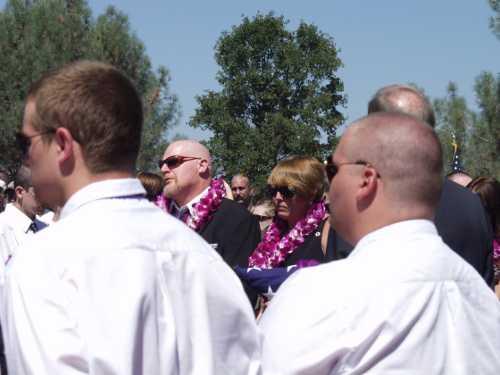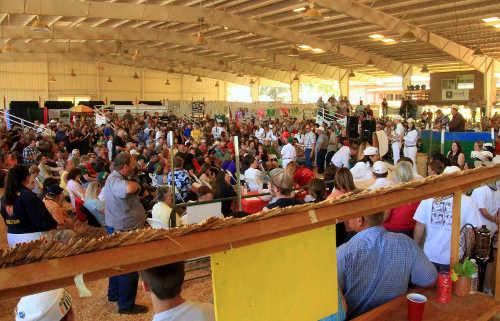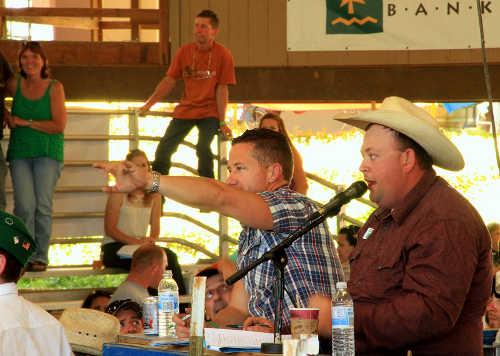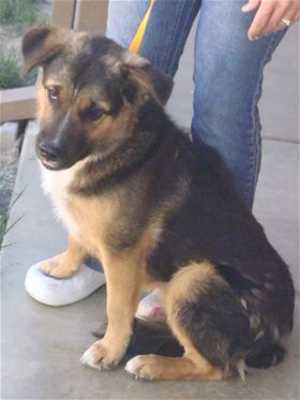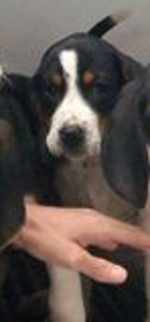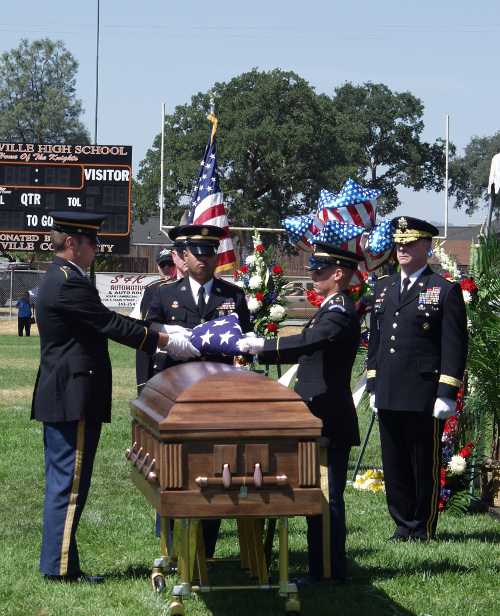
KELSEYVILLE, Calif. – The deep-throated rumble of a Black Hawk helicopter was a sound Richard Essex knew well.
The 23-year-old, who entered the Army not long after graduating from Kelseyville High School in 2008, had volunteered to be a Black Hawk door gunner, a job that his sister, Jennifer Williamson, said he loved, which fit with his “adrenaline junkie” personality.
He likely would have marveled at seeing the two Black Hawk helicopters circle over his hometown – where he had last visited 11 month ago – on Saturday, the pulse of their rotors filling the air over the estimated 1,500 people who attended his funeral.
Essex was killed in action near Shah Wali Kot, Afghanistan, on Thursday, Aug. 16, roughly five months before he was set to return home to his family.
He was traveling on a Black Hawk along with 10 others – including six members of the U.S. military – when the helicopter crashed, killing all aboard.
The Department of Defense has not stated why the Black Hawk fell from the sky that day – if it was in fact taken down by gunfire or for another reason.
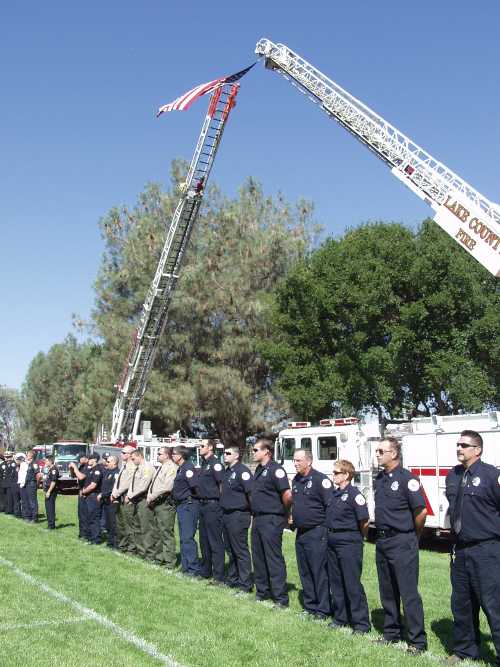
Essex’s Saturday funeral brought to a close several days of solemnities across Lake County, beginning with the arrival of his body on Tuesday, with a procession carrying him past his high school – a request he had made – and through Lakeport.
In addition to people of all walks of life, veterans from all eras – back to World War II and its first blow to the United States, Pearl Harbor – have paid tribute to the young soldier.
Brig. Gen. Duane A. Gamble, who spoke at the service, told Lake County News that the community had shown a “palpable” dedication to the young man and his family.
Earlier in the day firefighters from Lakeport, Kelseyville, Northshore, South Lake County Fire, Cal Fire, and Lake County Fire gathered to take part in the funeral service. An American flag was hung from ladder trucks from Lakeport Fire and Lake County Fire.
Attired in their formal dress, firefighters, Lake County Sheriff’s deputies, Clearlake Police officers, California Highway Patrol officers, wardens with the California Department of Fish and Game and Lakeport Police officers lined the far end of the field, standing before the fire trucks and keeping watch throughout the service.
Lakeport Police Det. Lou Riccardi and his patrol car led Essex’s hearse into the stadium, where it was met by an honor guard of young military men who carried it to the catafalque near where his family sat.
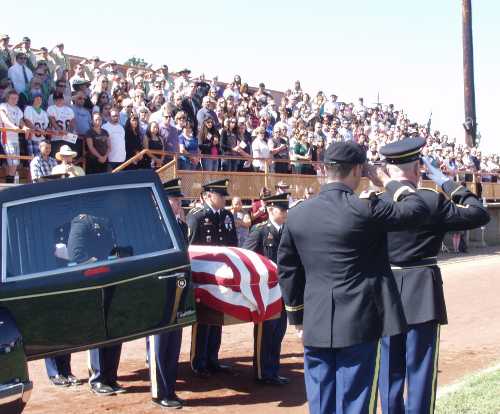
County Supervisor Rob Brown, a family friend, led the welcomes and introductions at the service, telling those who came to honor Essex, “It is my hope that you go away with one understanding – what it is that makes an ordinary boy into an extraordinary man.”
Helping create that understanding were the members of Essex’s family and his friends who spoke during the hour-and-a-half-long service.
They remembered him not as a faraway figure, wrapped now in the painful distance of loss, but as boisterous, fun loving, thoughtful, occasionally misbehaving, filled both with passion and compassion.
Essex had struggled with language and speech, yet went on to prove wrong a high school English teacher who had told him that English “wouldn’t be his thing.” He had two books of poetry published, “Whispers” and “Shade Tree Memories.”
In a poem titled “Place of Death We Call Sand,” included in the “Shade Tree Memories” collection, Essex had written – in words that suggest an eerie foreboding – “I ride a pale horse / To place of sun and sand / Where life is lost.”
He was a raucous boy, a warrior poet, whose entry into manhood led him far from home, but not far from the hearts of those who knew him.
And, ultimately, the life of intense promise for which he was remembered – friend David Cimina remembered Essex “radiating greatness” – was cut short.
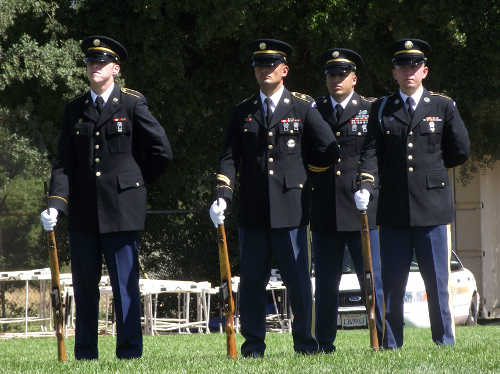
Brown credited Essex’s mother, Marion Hopkins, with guiding him to be the man he became. He said Hopkins was an extraordinary mother, committed to her children and always present at their events and games.
While being dealt a blow that no parent should have to face, a clearly moved Brown, whose voice faltered at times during the memorial, told her, “It is you who have inspired us,” and those who knew her son were better for it.
Joey Luiz, Clearlake’s mayor and a longtime friend of Essex – he had known him since he was a toddler – began by remembering his young friend nearly getting caught while partying as a teenager.
Luiz, also at times overcome with emotion, said on Aug. 16 he received a text message saying that Essex’s debt had been paid. He said the community and country owed the young soldier a debt.
Luiz recognized Essex’s family, who he thanked for sharing Essex. He also offered a challenge: “Where Richie’s service ended, our service must begin.”
Essex’s family had earlier received a flag from Congressman Mike Thompson that had been flown over the US Capitol in the young soldier’s honor.
At the service, California Highway Patrol Northern Division Assistant Chief Ruben Leal, on behalf of Gov. Jerry Brown and law enforcement, presented Essex’s family with a flag that had been flown over the State Capitol building.
Essex’s siblings and friends who spoke recalled how he inspired them to do what they loved.
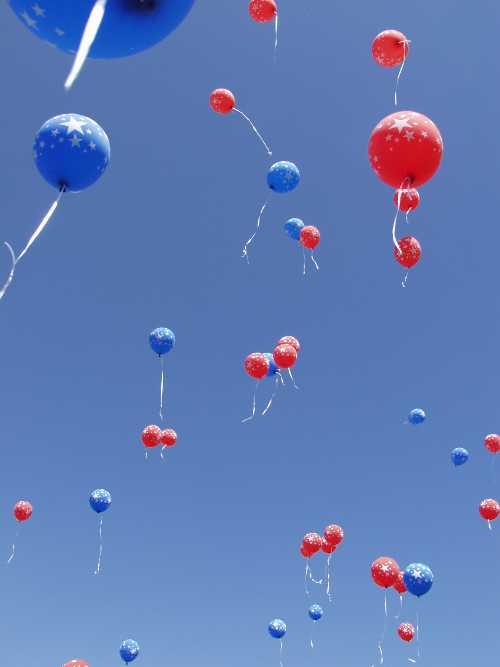
Sister Jennifer Essex Williamson said they were not there to mourn but to remember a hero. She thanked law enforcement, firefighters and the soldiers who remain on the front lines.
She told her brother, “I hope you can hear me, because I love you so much.”
His friend Rocky Cimina briefly spoke before a song he wrote for Essex was played.
Brown told those assembled that Essex’s final gift to the community was the ability to set aside differences and come together “to pay tribute to this good man.”
Brig. Gen. Gamble said he offered the gratitude of the military and a grateful nation for Essex’s service. “We will never leave a fallen comrade behind.”
Essex had gone to both Iraq and Afghanistan “without fear or hesitation,” and volunteered to be a door gunner, Gamble said.
“We’ve lost one of our best,” who had more to give, Gamble said.
He quoted Ralph Waldo Emerson, who wrote,
“Not gold but only men can make
A people great and strong;
Men who for truth and honor’s sake
Stand fast and suffer long.
Brave men who work while others sleep
Who dare while others fly ...
They build a nation’s pillars deep,
And lift them to the sky.”
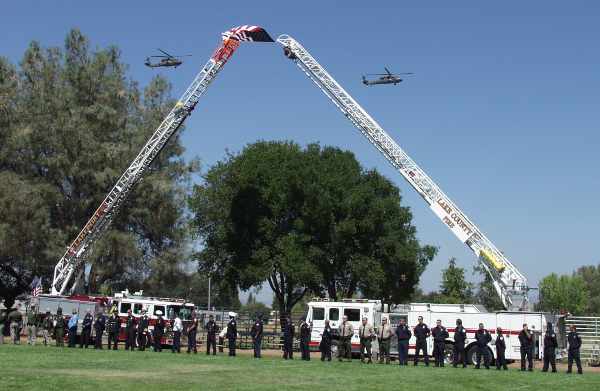
Essex was posthumously promoted to sergeant, and received the Bronze Star Medal for meritorious service and the Purple Heart. The awards were presented on Saturday to his family, who after the rifle volley and playing of “Taps” also received the flag that had draped his casket.
Then the Black Hawks came. They passed the field, circled, passed again and on the third and final pass one veered off in the “missing man” formation to salute the young soldier. Then both flew back toward the west.
People were invited to write messages on the balloons tied to the 350 chairs set up in front of the bleachers. Those balloons, with their prayers and farewells, then were released, rising into the sky.
As it came time to leave the field for the final time, Essex’s pallbearers – brothers Michael Essex and Michael Williamson, and friends Tim Stites, Rocky Cimina, David Cimina, Tommy Mingory, Billy Peacock, Zac Moe, Patrick Haley, Dylan Grier and Dalton Moore – carried his casket to the hearse, with Corey Heart’s “Sunglasses at Night,” playing in the background.
Email Elizabeth Larson at This email address is being protected from spambots. You need JavaScript enabled to view it. .
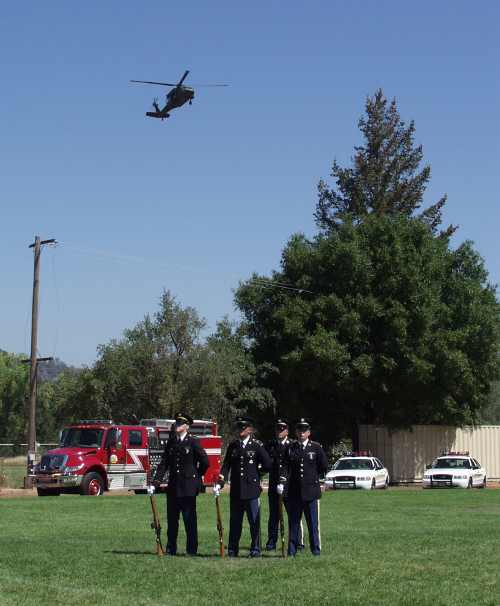
Place of Death We Call Sand
I’ve seen faces on the wall
Seen people break down
Friends carried away cases
A friend who I won’t finish my promise
Family that loves me
Shadows that induce me
Teachers who gave all their knowledge to kids
New friends who showed me a new way of life
Old friends who taught me life was fun
Riv riders who showed me the meaning of life
Now it’s dog soldiers
Who fight for freedom and for each other.
I ride a pale horse
To place of sun and sand
Where life is lost
– Richard Essex, from the book, “Shade Tree Memories,” published February 2010
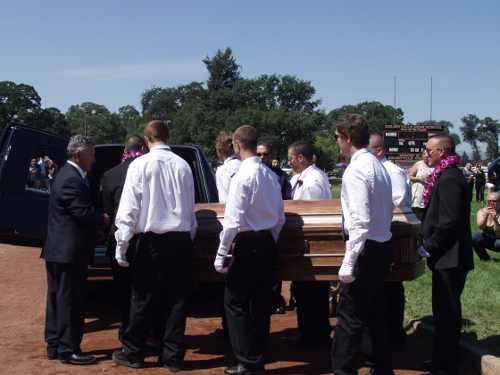
For the Love of Things
Little bee on the rosebush
May you smell the sweet scent of the flower.
Never forget this flower in which it will come back
When you leave the field in which you fly around
You go around trying to find that one you found that day
But all you see is gray
It's never coming back to you
It lost its scent at summer's end
Now its winter and you try to stay alive
That rosebud is all you think about
Just hope for the sun
And maybe you will smell that scent once again
Not in a dream or a fairy tale
Just for the scent you would die a thousand times over
You wait in the cold where you found it
But the sun never comes
Summer's dew runs through the field of dreams
The winter's cold is gone
Flowers bloom
And those roses come back to life
But the bee has died waiting for the flower
The poor being lies beside the rosebush, its dying wish
For that sweet scent
Now rose-red buds lie on its grave
That is love for beauty
And not for entertainment of others.
– Richard Essex, from the book, “Whispers”
